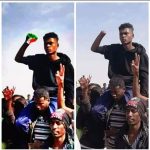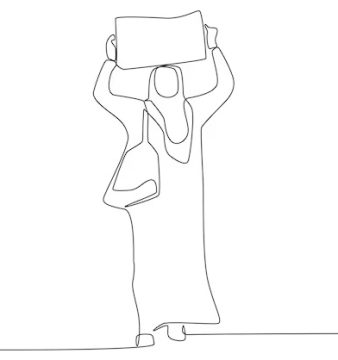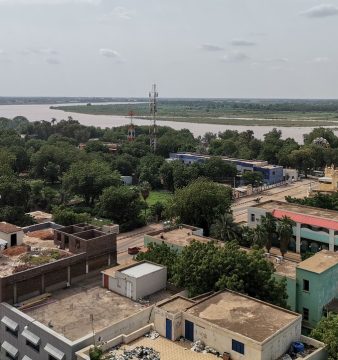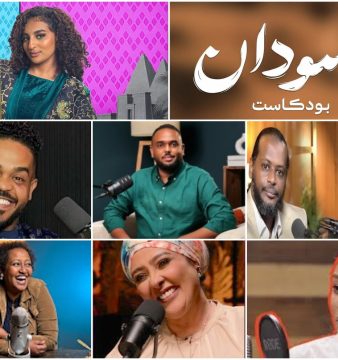Sudan Protests Unearth Police Brutality
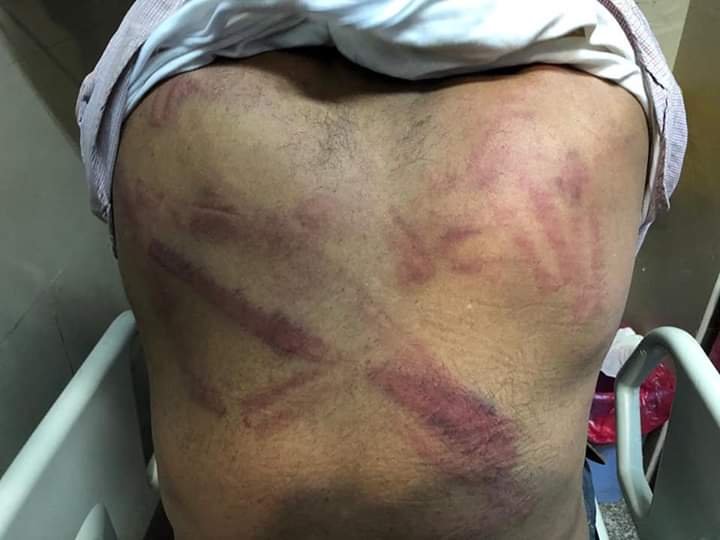
It has been three months since anti-government protests began in Sudan. The protests began on a small-scale on 19 December 2018 due to a hike in prices of basic commodities such as bread and fuel shortages and began to get bigger day by day ever since. On 12 February 2019, Sudanese President Omar Al Bashir said, ‘The Sudanese people possess the right to express their freedom’. Yet, at least 50 have been killed in clashes with riot place, according to the Human Rights Watch (HRW). But the Sudanese government says the number of casualties are less, stating at least 30 people have been killed.
In a public speech, addressing his supporters during a pro-government rally in the Green Yard on 9 January 2019, the president said that ‘changing the government or presidents cannot be done through WhatsApp or Facebook. It can only be done only through elections’. Yet, people have been questioned and others arrested for simply posting and voicing their protest against the government on social media. And as a response to the large numbers of online anti-government posts and tweets, Sudanese authorities have been limiting social media access across the country. Social media users have been bypassing the restrictions by using virtual private network (VPN), which can hide a user’s location and actions online. It wasn’t unlocked until recently.
Those who were imprisoned during protests talked about what happened when they were captured to what goes on inside the prison cells. Police brutally has been heard, seen and reported.
BBC Africa and HRW have caught on the government’s torture and violent attack on protesters, and have diligently reported on it.
Since the protests began, government forces have fired tear gas, rubber bullets and live ammunition on protesters. Tear gas has led to critical injuries such as severe eye pain, respiratory pain, skin irritation, bleeding, blindness, skull fracture, and in some cases, even death. Typical warnings on tear gas canisters state, ‘Danger. Do not fire directly at the person. Severe injury or death may result’. Government forces seem to have neglected the necessary warning and as a result, have left hundreds injured. In many cases, government forces have launched tear gas horizontally – rather than upwards, as it should be – at protestors, only five metres in distance.
A fourth-year medical student Mohammed Abdelhalem was hit with a tear gas on the left eye and was instantly taken to the hospital. The doctors declared a fragmentation in the facial bone structure and he had to undergo a serious medical surgery. The surgery was successful, however, Abdelhaleem permanently lost his eyesight on the left eye.
- Mohamed Adel after surgery
- Mohamed Adel returns to protest
One of the most known cases of severe tear gas injuries are of two protesters who permanently lost their eyesight on one of their eyes. Mohammed Salih Adel, a student at the University of Khartoum, lost his right wrist due to the explosion of the tear gas next to him. After the surgery, Adel was seen back in the streets protesting and said he had no regrets about what happened to him. He has been hailed as a champion and victor by protesters.
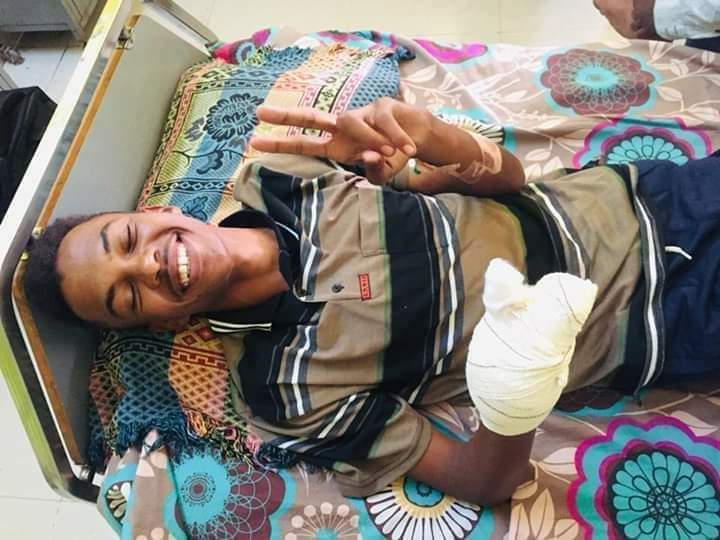
Abubakr AlFadlabi
Abubakr AlFadlabi lost three fingers on his right hand while protesting on 22 December 2018. The injury was caused by explosion of the tear gas when he attempted to pick it up and throw it away from protesters.
The use of live bullets weren’t just used to scare, slow down or disperse protests. The bullets were fired to kill – shoot to kill. If the purpose of firing live bullets was just to scare protesters or disperse protests, then the bullets would have been fired up in the air. Many of the protesters who have died during protests succumbed to bullet wounds in the head or chest, rather than arms or legs. Salah Yousif lost his eye when he was hit by a live bullet during protests in Khartoum. He eventually had to travel to Moscow for surgery.
One of the most known martyrs of the Sudan uprising is 25-year-old Dr Babiker Abdulhameed. He was attending to injured protesters inside a house during protests in Burri on 17 January 2019. Police forces tried to force them out of the house, firing tear gas inside the house. When protesters couldn’t hide inside the house anymore, Dr Abdulhameed opened the door, holding his hands up high, indicating that he is coming out peacefully and he is a doctor attending to the injured. However, they fired, instantly killing Dr Abdulhameed.
الشهيد الدكتور بابكر عبدالحميد
نائب أخصائي بمستشفى أحمد قاسماستشهد برصاصه في الصدر على يد قوات النظام وهو يحاول إنقاذ وإسعاف المصابين اثناء المظاهرات ببري
بتاريخ 17/1/2019اللهم انزله منزلاً مباركاً وأنت خير المنزلين
لن ننسى ولن نغفر pic.twitter.com/qs5qWqK5KO
— شهداء الثورة (@7asanat_sudan) March 11, 2019
When government forces were not firing tear gas or bullets at protesters, they would use their sticks known as batons or truncheons to brutally beat protesters, whether men, women, children, the elderly or the disabled.
Second-year medical student of the Faculty of Medicine at Al-Razi University Mahjoub Al-Taj Mahjoub was captured and tortured by security forces while at university, and was tortured and brutally beaten with excessive blows to the head. He lost consciousness and had to be taken to the hospital. He was pronounced dead by the time he arrived to the hospital. Government forces have refused to comment on his death and denied any responsibility for his death.
الشهيد محجوب تاج السر طالب بجامعة الرازي المستوى الثاني طب بعد تعرضه للعنف و الضرب بعد إعتقاله من قبل قوات الأمن و على حسب شهادات من زملائه تعرض للضرب من قبل أفراد الأمن حتى أغمي عليه طالب بعدها أحد أفراد الأمن أن يتم صعقه بالكهرباء ليواصل بعدها أفراد الأمن الضرب pic.twitter.com/XD6WrMuJGI
— شهداء الثورة (@7asanat_sudan) February 19, 2019
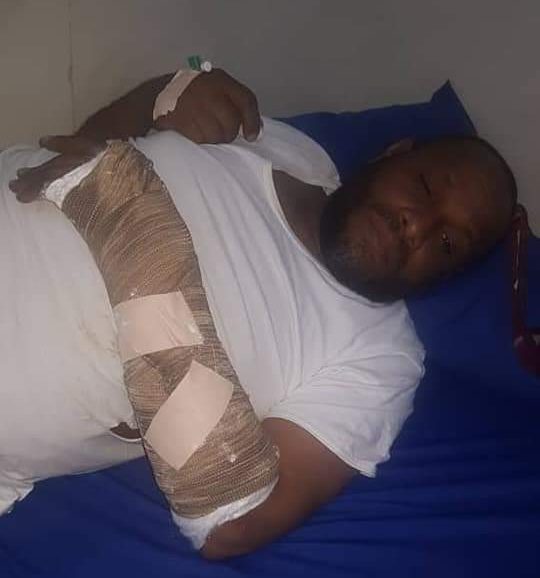
Obai Abdulla
Sudanese motorcycle champion Obai Abdulla, who has entered motorcycle championships in over 34 countries around the world, was arrested on 13 January 2019. He was brutally beaten, which resulted in a fracture on his left arm and several bruises that needed medical attention.
Government forces are not just attacking protesters. In addition to attacking and firing tear gas within hospitals, they have targeted and arrested an enormous number of doctors for wanting to save the lives of the injured. Some doctors stood in solidarity with the protesters and declared a strike on several occasions – they will not be accepting any patients unless necessary, but the management of these hospitals responded to their strike by firing them.
Despite all of this, protests in Sudan show no sign of slowing down. In fact, more people are joining the ongoing protests, which is now being referred to as the Sudan uprising. As more blood is shed and more protesters face police brutality, many more protesters are joining the street protests with perseverance and bravery.
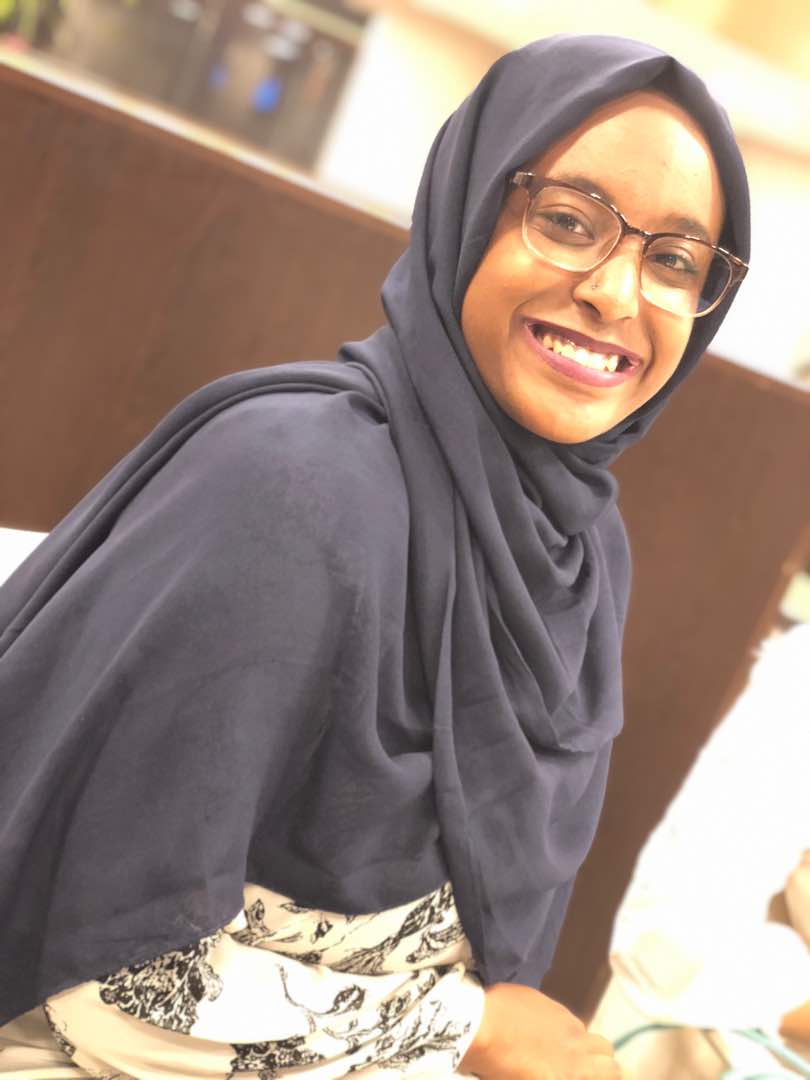 Rawan Abazer is an architect-to-be based in Sudan, trying to put her fingerprints on the world by writing. ‘We put our passion towards traveling and exploring the world into writing,’ she says.
Rawan Abazer is an architect-to-be based in Sudan, trying to put her fingerprints on the world by writing. ‘We put our passion towards traveling and exploring the world into writing,’ she says.


